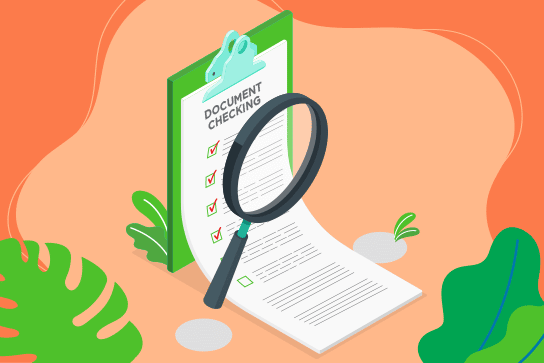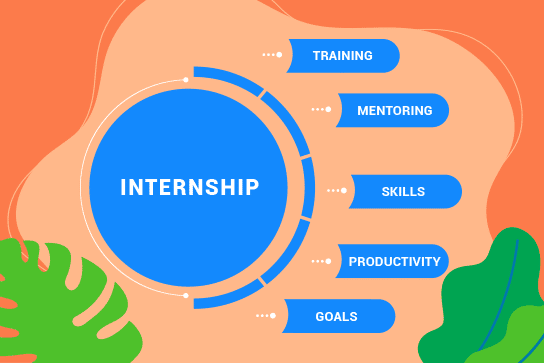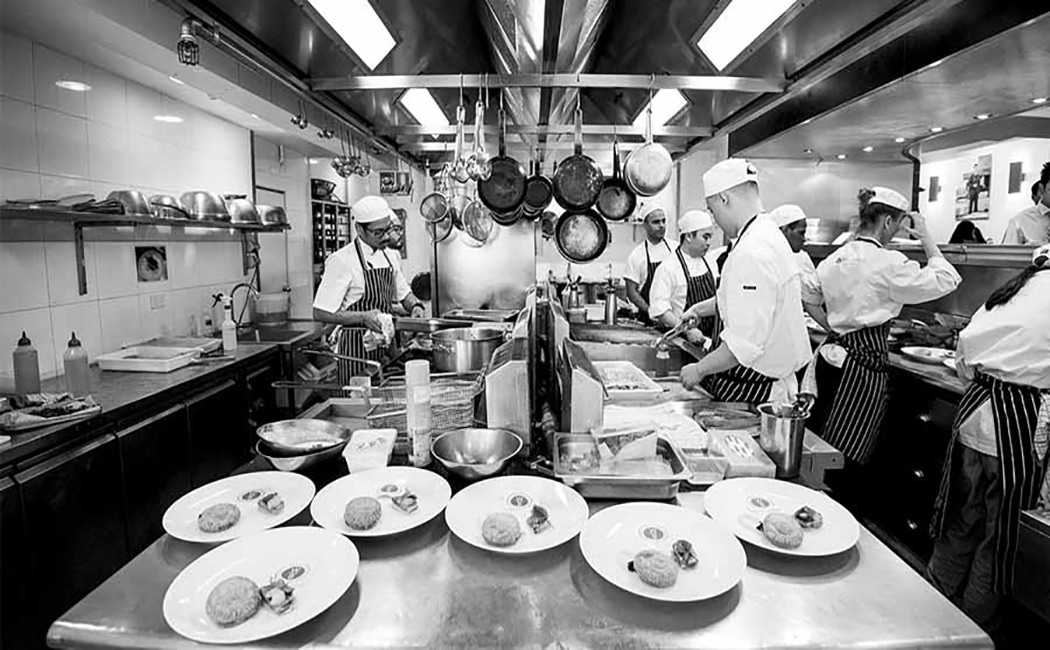Student-managed and operated fine dining restaurant, William Blue Dining, has been voted number 6 restaurant in Sydney by users of popular travel website TripAdvisor.
Bring your passion to life, combining technical skills in commercial cookery with the Australian formal qualification, you’ll enjoy the most dynamic and multicultural working environment and rewarding career as a Chef in Australia.
A career as a Chef in Australia can open many doors for an international students. The hospitality industry in Australia is growing and the career opportunities on offer can take you anywhere from a little tiny laneway restaurant in Melbourne City or a lavish Ezard winery restaurant in Levantine Hill or an upscale resort in far-north Queensland.
So you want to become a Professional Chef in Australia, but not sure where to start? From what course and which Hospitality College you should study to how long an apprenticeship will takes. Ozlinks Education answer all your questions about how to become a professional and qualified chef and how to succeed in Australia which may help you to get a job, work and pathway to permanent resident.
As a Chef, it is your culinary vision that will be presented food on the plate, setting the scene for a dining experience that your customers won’t forget. You will create menus, refreshing classic dishes to keep up to date with creative new trends. You will develop your own style of cooking that has evolved from personal experiences and time spent in the hospitality industry.
If you’re just starting to explore the idea of a culinary career, you may need to know how a Vietnamese Luke Nguyen become a Celebrity Chef in Australia. He has grew up with a washing dishes job at their tiny Vietnamese eatery in Sydney. He now has multiple fine dining restaurants, the cookbooks and TV programs to his name Luke Nguyen.
So What Do Chefs Do?
Chef don’t just cook food, they in charge of the kitchen in restaurants to function or other places where food is served. Depending on the chef’s level of seniority, they can be responsible for an entire process of creating dishes, from researching and planning a menu to sourcing produce, organising the kitchen, designing the presentation of each dish. Some chefs are in charge of a particular section, such as hot or cold menus, according to the kitchen hierarchy.
Chef Duties
- Set up the kitchen with cooking utensils and equipment, like knives, pans and kitchen scales
- Study each recipe and gather all necessary ingredients
- Cook food in a timely manner
- Delegate tasks to kitchen staff
- Inform wait staff about daily specials
- Ensure appealing plate presentation
- Supervise Cooks and assist as needed
- Slightly modify recipes to meet customers’ needs and requests (e.g. reduce salt, remove dairy)
- Monitor food stock and place orders
- Check freshness of food and discard out-of-date items
- Experiment with recipes and suggest new ingredient
- Ensure compliance with all health and safety regulations within the kitchen area.
How much does a chef earn in Australia?
According to PayScale, the median annual salary of a Soups Chef is approximately $55,945 per year before tax. The annual salary in Australia for a Chef between $50,000 to $65,000, depend on your skills level.
So it time to find out more about William Blue Colleague’s Culinary Management Course and discover the concrete next steps for starting out in the industry.
About William Blue College of Hospitality Management
William Blue College of Hospitality Management is an Australian private hospitality college that offers both tertiary education and vocational education and training. The college is owned by education provider Think Education, itself part of the Laureate International Universities group. The Laureate network of more than 80 campus-based and online universities offers undergraduate and graduate degree courses to over 1,000,000 students around the world. Laureate is the largest education network in the world.
Culinary Management Course
Bachelor Degree CRICOS 094181A
Associate Degree CRICOS 0941808B
International Students with a passion for incredible food and creating amazing dining experiences. You’ll learn the practical skills required to become a proficient chef who aims to deliver an unforgettable customer experience. Culinary Management offers practical restaurant experience and in-depth knowledge of the various cuisines of the world.
The first two years of the course focus on your technical skills as a chef. You will apply your theoretical knowledge and hone your practical skills in our live kitchen, William Blue Dining. In your second year, you will spend six months working as a chef for your industry placement subjects.
Perhaps your goal is to one day own your own restaurant? The final year of the course will equip you with the skills and knowledge to own or manage a restaurant. You will coordinate the day to- day activities of the restaurant while also being responsible for the strategic planning, marketing and development of the business.
Your career starts the day you commence your course at William Blue. Everyone learns better through doing. Hands-on experience is worked into every course at William Blue so that you can graduate confident and already sure of your skills. Beyond the classroom, you’ll have an understanding of what’s going on in the real world that will be crucial to career success. 800 hours (6 months) of industry placement is built into the requirements of all Associate Degree and Bachelor Degree courses.
Industry placements and internships represent a substantial opportunity for you to further develop what you have learned in the classroom by applying it in a professional workplace. William Blue students undertake industry placements with some of the most prestigious hospitality, tourism and events organisations in Australia and the world.
A successful industry placement, combined with further work experience or internships, will make you a highly employable and highly skilled professional, ready to work in the hospitality, tourism, events or restaurant sectors.
The type of qualification you should pursue depends on what kind of chef you want to become. Getting qualified can take anywhere from 6 months to 3 years, but you’ll need at minimum a Certificate III in Culinary Arts to work professionally.
Working in a restaurant is not the only path available to you as a chef. It’s worth considering other routes such as baking or patisserie, both of which are experiencing a boom and urgently in need of skilled, talented people to fill the workforce gaps.
Course includes
- Business Communications
- Understanding People and Organisations
- Marketing Fundamentals
- Customer Experience Management
- Introduction to Professional
- Cookery – Practical
- Introduction to Professional
- Cookery – Theory
- Introduction to Kitchen
- Operations
- Introduction to Patisserie
- Industry Placement 1 and 2
- Accounting for Decision Making
- The Business Environment
- Intermediate Professional
- Cookery – Practical
- Intermediate Professional
- Cookery – Theory
- Advanced Kitchen Operations
- Menu Engineering and Design
Entry Requirements Bachelor & Associate Diploma
Satisfactory completion of Australian Year 12 or equivalent overseas secondary education is required. International students require IELTS Academic 6.0 or equivalent with no skills band less than 5.5.
Start Dates for 2021
- February
- June
- September
Career Outcomes
Some of the possible career outcomes for a graduate include:
- Executive Chef
- Executive Sous Chef
- Chef de Partie
- Food and Beverage Manager
- Restaurant Manager and Owner
- Café Owner or Manager
- Area Manager or Operations Manager
William Blue Dining Restaurant – Practical work
Work as a apprentice chef while you gain your qualification.
William Blue Dining restaurant is running by their Hospitality student, recently relocated to The Rocks at the former site of Neil Perry’s Rockpool restaurant. With a seating capacity of 60 places, it’s open to the public for lunch and dinner and gives vocational students the chance to learn upmarket food and beverage service skills in a live environment. William Blue Dining showcases the talents required of a hospitality industry professional. The daily interaction with real customers will give you a deeper understanding of the many challenges of the industry – operational, financial, or even psychological. This understanding will single you out from less experienced colleagues in the workplace.
What is the next step after complete my course?
Your career already begins from the day you set foot on campus at William Blue. The Industry Networks and Placements programs, which enable you to build Hands-on experience during your six months working as a chef for your industry placement subjects. It is substantial opportunity for you further to develop your long career goals and start kick off with you career in the professional hospitality industry.
The real work begins
Like any other career, as a chef you will need to work your way up the ladder from being a Commis chef and the chef position ranking as the following:
- Commis Chef (Junior Chef)
- A Commis Cook is an entry-level position for new chefs; they work under the supervision of a Head Chef or Chef de Partie.
- Chef De Partie (Station Chef, Line Chef, Line Cook)
- Sous Chef (Duputy Chef)
- Head Chef (Chef de Cuisine)
- Executive Chef
Source from William Blue College




